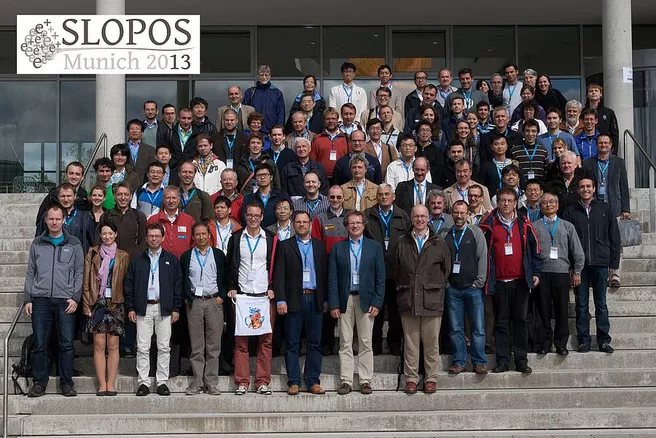This event is part of a series of triennial SLOPOS-conferences. It was a great honour when the international research community chose the TUM as an organizer despite attractive competitors such as the USA, China and India.
The excellent scientific program comprised 50 talks and 58 posters presented during two poster sessions. It was very impressive to learn about novel technical developments on positron beam facilities and the wide range of its applications all over the world. The workshop reflected the large variety of positron beam experiments covering fundamental studies, e.g., for efficient production of anti-hydrogen as well as applied research on defects in bulk materials, thin films, surfaces, and interfaces.
The workshop offered the unique opportunity to meet friends, get acquainted with new colleagues, and discuss lively scientific topics – also in informal atmosphere during a Bavarian Brotzeit at the poster sessions.
To our great delight, student prizes were given to a team of students from Finland, a French student, and the NEPOMUC team. At the end of the conference a guided tour of the experimental hall of FRM II was offered. Particular focus was laid on the positron beam facility and the four different spectrometers which are currently operated at the high-intensity positron source NEPOMUC.
The conference was overshadowed by the sudden death of Prof. Dr. Klaus Schreckenbach immediately before the workshop. In commemoration of him as a spiritual father of the neutron induced positron source was thought in a minute of silence.
A very high number of conference participants already gave a pretty positive feedback that confirms the success SLOPOS13. We are still very happy to have hosted such a fruitful workshop with its high-quality scientific contributions.
We are looking forward to SLOPOS14 in Japan in 2016!
A more detailed report about the workshop can be found here.
